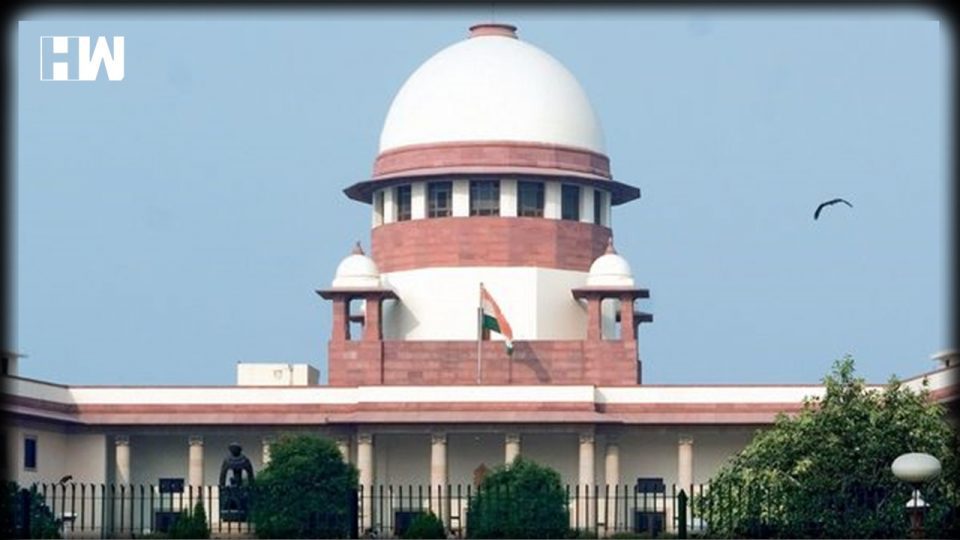New Delhi: The Supreme Court has asked the Uttar Pradesh Government to return the any properties or money taken from the Anti-CAA protestors, amid alleged damage caused to public property. The Uttar Pradesh has agreed to withdraw notices and subsequent proceedings initiated against anti-CAA protesters.
Facing criticism from the Supreme Court, amid flouting its guidelines during the time of taking action against the protestors, for recovering the damage caused to public property during the protest in the year 2019 against the Citizenship Amendment Act (CAA), the state government told a bench of Justices D Y Chandrachud and Surya Kant that two orders were issued on February 14 and 15 by which notices issued to 274 protesters and subsequent proceedings against them have been withdrawn.
Additional Advocate General Garima Prasad has said, “The state accepted the observation of the apex court and decided to drop proceedings.”
Her request that the state authority be allowed to proceed afresh against the protesters under a new law enacted by the state which is as per the SC’s guidelines was accepted by the bench.
Appearing for the petitioner, Advocate Nilofar Khan, who had challenged the proceedings of the state government against the protestors, has said in the court that the state had taken action against poor people, including rickshaw-pullers and small shopkeepers, whose properties were attached and forced them to pay for damage, amid this they had to sell their assets which were their source of livelihood and pleaded to the court to direct the state to refund the amount “running into crores” to them.
The state has strongly opposed the plea and has tried to convince the apex court to refrain from passing an order and to leave it to the state to take a call on the issue. The additional advocate general contended that the model code of conduct was in force in the state due to the ongoing assembly election and pleaded that the court should not address the issue of refund and should pass an order to maintain the status quo.
The bench was not convinced and has said that once the show-cause notice and proceedings against protesters had been withdrawn, the state was bound to refund the money recovered from them. The court said that the state can take fresh action against them if proceedings are initiated again against them, The court also made it clear to the state that enforcement of model code of conduct cannot prevent a government from enforcing a law and implementing the court’s order.
“If citizens’ property has been attached and when the order for attachment has been withdrawn, then how can we say that the property remains attached. We cannot pass an order in contravention of law,” the bench said. Such an order would amount to “undue enrichment” for the state, the bench added. The apex court had in its last hearing pulled up the Uttar Pradesh government for flouting its guidelines, saying that the state donned the hats of both complainant and adjudicator in the proceedings against the protesters.
The petitioner alleged that as per the SC’s guidelines, a sitting or retired high court judge is to be appointed as a claim commissioner to estimate the damage or probe liability, but the state government did not follow it, doing away judicial oversight in the assessment of damage and recovery of compensation.
“The present PIL is also being filed seeking Writ of Mandamus in the form of directions to the state of Uttar Pradesh to follow the procedure as per the guidelines of this hon’ble Supreme Court given in 2009 and 2018, while claiming damages to recover losses caused to public property during the said protests and further seeking to constitute an independent judicial inquiry to probe into the incidents occurred during the protests against the CAA-NRC in the state of Uttar Pradesh as has been done by the Karnataka high court in view of the recent protests against CAA-NRC,” the petition said.
The petition said the contradiction is that while the Supreme Court in 2009 put the onus of assessment of damages and recovery from the accused on high courts of every state, the Allahabad high court had issued guidelines in a 2010 judgment that let the state government to undertake these processes to recover damages, which has serious implications.
“Judicial oversight/judicial review has been taken away by the HC in 2010 guidelines. Judicial oversight/judicial security is a sort of safety mechanism against arbitrary action. This means that there is every chance that the ruling party in the state could go after its political opponents or others who oppose it to settle scores. The HC, by vesting power in the government without judicial oversight/judicial security, seems to have overlooked this concern and not in consonance with SC,” it said.
As an independent media platform, we do not take advertisements from governments and corporate houses. It is you, our readers, who have supported us on our journey to do honest and unbiased journalism. Please contribute, so that we can continue to do the same in future.

